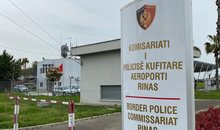
 Flash News
Flash News
Suspected of being murdered, photo emerges of 23-year-old found dead in Shkopet lake
Theth action, resident in tears: I built on my land with my life's expenses, the state should not destroy it
Directors targeted! After Fier and Durrës, Rama arrives in Elbasan
Name/Identification of the 23-year-old found dead near Shkopet Lake
IKM action in Theth, residents come out in protest
Agritourism develops the deep areas, but the potential is limited by the lack of investment
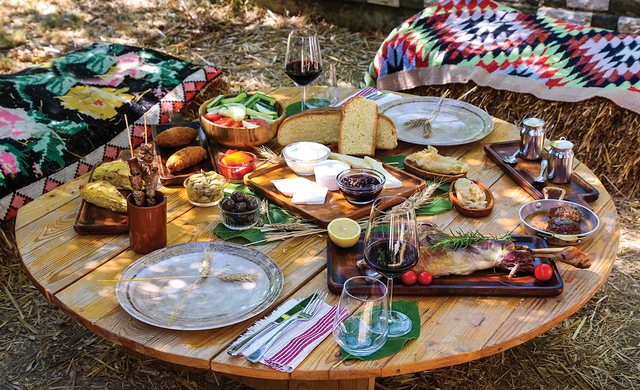
Rural Albania is making more and more foreigners, but also locals, curious to spend time near nature and "bio" products. This is giving a greater boost to agritourism, which continues to expand with new names all over the country.
But while for some of them, the work is easier, as they are located near urban areas and access to infrastructure, energy and drinking water is easier, for others, in deeper areas, investments are slower .
This makes the daily activity more difficult, as they are constantly between the pressure of providing the best possible service to customers and investing their forces in things that the state should bear the weight of.
This means that the money that should have been directed to build one more greenhouse, an entertainment or complementary environment or expansion of the accommodation capacity, will "evaporate" to provide energy through the generator, ballast on the road or to bring a little more too much water in the structure.
Foreigners' interest in agritourism is increasing, businesses complete the packages
The general trend of tourism, where the number of foreign visitors has been increasing from year to year, is also reflected in agritourism.
These structures report an increase in interest, where more and more through platforms like Booking, foreigners are choosing to enjoy the most authentic side of rural life and Albanian cuisine.
"Foreigners remain in limited numbers, but it is a growing trend, so they are starting to come more and more. They choose to make reservations both from Booking, and on Instagram, or on the phone.
They are mostly European visitors, that is, French, Dutch or German, who stay for a maximum of three days", - affirms Haxhi Maleci from "Baresha", an agrotourism in the area of Reçi in Malësi di Madhe.
The same tendency is confirmed by Arjola (Brahimi) Xhebro from "Bujtina Xhebro", near the village of Nivicë in Tepelën. According to her, foreigners are loyal visitors to the structure, where in some cases they have returned two or three times.
"For this year, we have just started, so it is about April and May, and there has been interest, especially from foreigners. They make reservations on Booking and 90% of them are foreigners. Belgians, Czechs, Italians dominate more. From what we are seeing, it seems that everything has started well", she underlines.
Year after year, agritourism entities have realized that offering only good food is not enough to keep a tourist. Therefore, many of them have supplemented the offer with tourist guides in specific points of the region, which are an added value.
“Zona përreth ka 2-3 vende shumë interesante të cilat shërbejnë për të ofruar diçka shtesë për vizitorët. Për shembull, një nga mundësitë është vizita në Masivin e Gështenjave, ku duke ndjekur shtigjet që janë të hapura mund të bësh ecje.
Një tjetër pasuri e zonës është Shpella e Pëllumbave, që realisht është shumë e bukur. Po kështu janë edhe rrënojat e Kishës së Shën Elisë dhe për ata që kanë interes, ne i çojmë edhe aty.
Madje në këtë zonë ka edhe maja malesh, që të huajt i parapëlqejnë shumë për t’i eksploruar dhe për t’i ngjitur” shprehet z. Maleci.
Agroturizmi zhvillon zonat e thella, por potenciali kufizohet nga mungesa e investimeve
Agroturizmet e ndërtuara afër me zonat urbane, përveç ushqimit, kanë si pikë të fortë aksesin e lehtë për klientët.
Ndërkohë, ato në zonat më të thella, pavarësisht se ofrojnë përveç ushqimit edhe një natyrë të jashtëzakonshme, kufizohen nga aksesi i vështirë në infrastrukturë, energji apo ujë.
Znj. Xhebro pohon se të paktën për zonën ku ndodhet bujtina e familjes, rruga është një nga faktorët kufizues.
“Mendoj se ka mundësi për rritje, por na kufizon infrastruktura. Për hir të së vërtetës, na është premtuar që shumë shpejt do të nisë rregullimi i saj dhe kjo do t’i japë një tjetër nxitje zonës, e cila ka nisur të zhvillohet edhe me projekte të tjera.
Edhe familjet e zonës kanë nisur t’i kthejnë banesat në bujtina, duke parë këtë si një mundësi që po vjen nga turizmi. Zona ka potencial, që vjen nga një natyrë e jashtëzakonshme, pasi ndodhet në kufi me Vlorën dhe në rrëzë të malit të Këndrevicës, pesë kilometra nga fshati Nivicë në Tepelenë”, – shprehet ajo.
Ndërkohë në disa rajone, teksa infrastruktura ka përparuar, duket se ka ende aspekte ku duhet të investohet që lidhen direkt me ofrimin e një shërbimi cilësor në këto struktura agroturistike.
“Rruga është bërë nga Bashkia para një viti e gjysmë dhe është në gjendje shumë të mirë. Furnizimi me energji elektrike realisht është shumë keq.
Kam një gjenerator të madh, që më sjell një kosto shumë të lartë, por s’kam çfarë bëj, duhet për të përmbushur nevojat që kemi si strukturë agroturistike. Pavarësisht kësaj, problemi ynë real është uji.
Ne kemi një ujësjellës që sjell ujin, por nuk është i organizuar. Duke qenë jashtë kontrollit të institucioneve, shpesh bëhet shkak për konflikte.
Ndodh që uji i pijshëm merret për vaditje të tokës dhe në këto raste, mbeten pa ujë familjet. Gjatë verës, kjo është një situatë shumë shqetësuese”, – shprehet z. Maleci.
Tkurrja e bujqësisë dhe blegtorisë vështirëson rritjen e agroturizmit
Bujqësia dhe blegtoria, si dy sektorë të lidhur drejtpërdrejt me agroturizmin, mund të vështirësojnë ose lehtësojnë rritjen e tij.
Në vendin tonë, tkurrja e dy sektorëve të parë ka krijuar një mjedis më sfidues për sipërmarrjet agroturistike, duke rritur së pari kostot për produktet lokale që u duhet të sigurojnë, por edhe për investimet e shpejta që u duhet të bëjnë për të kompensuar ndryshimet drastike të prodhimit në rajonet ku funksionojnë.
Haxhi Maleci, who used to provide milk thanks to the cooperative relationship he had with local livestock farmers, now has to build a stable himself where he can raise goats.
"It is becoming more and more difficult to provide local products, as there is a decrease in interest in agriculture and livestock in the countryside. For example, I used to get milk from a relative of mine who had his own herd of goats.
But now, he is giving up and this is forcing me to invest in a stable myself, raising goats. I have no other way. In our area, there were 10 herds, today there are 2-3 such," he says.
Besides the fact that some of the residents in rural areas, mainly young people, no longer want to deal with agriculture and livestock, the negative effect on local production has also been highlighted by emigration.
"The production of dairy products is the main thing, considering that we have our own dairy, where the guesthouse we have today started and developed. We get the meat, which is also important, from the herdsmen of the area, but the herds have decreased a lot since some of the residents have emigrated and sold them.
This has brought us an increase in the price of meat, milk and, therefore, cheese. For example, the price of sheep's milk has gone from 80 ALL/liter to 160 ALL/liter", Mrs. Jebro.
According to her, today it is difficult to find even a temporary employee in these areas, where service is not part of the culture of rural areas as a business model.
Latest news



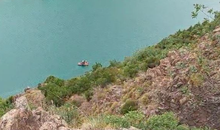
Found dead in Shkopet Lake, 23-year-old has injuries to his throat
2025-07-09 10:41:39
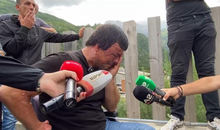

Hoxha: We will have a parliament that will surpass any comedy program!
2025-07-09 10:10:32

Directors targeted! After Fier and Durrës, Rama arrives in Elbasan
2025-07-09 09:53:57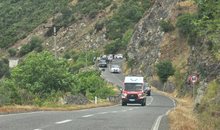
Name/Identification of the 23-year-old found dead near Shkopet Lake
2025-07-09 09:42:34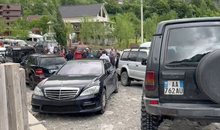
IKM action in Theth, residents come out in protest
2025-07-09 09:34:54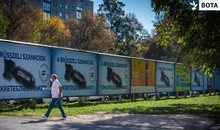
Reasons why the EU has not imposed new sanctions against Russia
2025-07-09 09:18:35
DW: Online scams increase human trafficking
2025-07-09 09:01:29

Reported missing by his father, 23-year-old found dead near Shkopet lake
2025-07-09 08:42:13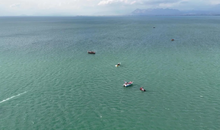

Horoscope, what do the stars have in store for you today?
2025-07-09 08:25:44
Sun and rain, Wednesday with unstable weather
2025-07-09 08:06:58
Posta e mëngjesit/ Me 2 rreshta: Çfarë pati rëndësi dje në Shqipëri
2025-07-09 07:52:02

Tabaku: Salianji bore a political cost that no one in Albania has borne
2025-07-08 22:36:15


Sekretet për të shijuar verën si një ‘profesionist’
2025-07-08 21:45:06

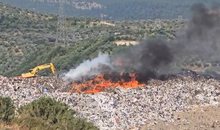
Albania's Waste Crisis: Toxic Smoke and Deep Governance Problems
2025-07-08 21:13:07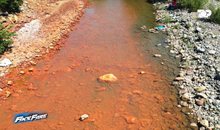
Alarming pollution in Fushë-Arrëz, copper factory waste turns the Fan River red
2025-07-08 21:07:14

Poll/ How do you assess the Prime Minister's intervention in local government?
2025-07-08 20:40:01
28 arrested in Italy and Spain for drug trafficking, including an Albanian
2025-07-08 20:24:14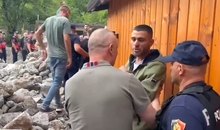
Residents clash with police in Theth: We are on our land
2025-07-08 20:11:41
Death of 27-year-old in Lipjan, Osmani: To be investigated independently!
2025-07-08 20:06:52
Trump promises US will send more weapons to Ukraine
2025-07-08 19:54:25

EU targets health, education, police and cadastre as areas of corruption
2025-07-08 19:23:34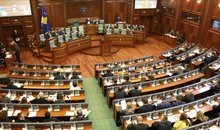

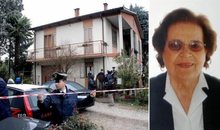


Salianji after his return: I did not oppose for functions, but for vocation
2025-07-08 18:23:15
Will he run in the 2029 elections? Here's how Salianji answers
2025-07-08 18:16:09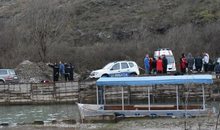
Boat captain drowns after diving into water to save two tourists in Shkodra
2025-07-08 18:05:12
Salianji from the DP headquarters: I brought a drug trafficker to justice
2025-07-08 18:03:26
After Fier, Rama "landes" in Durrës, dismissals expected
2025-07-08 17:53:32
Ervin Salianji arrives at the blue headquarters, welcomed by supporters
2025-07-08 17:45:12
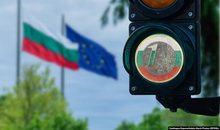
EU approves final steps for Bulgaria's Eurozone membership
2025-07-08 17:43:06

Zhupa after Salianj's release: Inspiration for every opposition member
2025-07-08 17:19:39
Actor David Killick passes away
2025-07-08 17:09:23



Threatened with dismissals, Rama arrives at the Fier municipality
2025-07-08 16:39:19
Extreme temperatures temporarily close Acropolis in Greece
2025-07-08 16:30:34
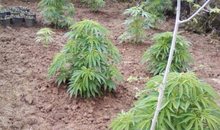
A plot of cannabis is discovered in Mazha, Kruja
2025-07-08 16:13:48

Republika Srpska allocates additional 22 million euros for lobbying in the US
2025-07-08 15:52:04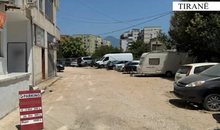
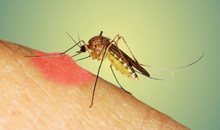
Spices that protect you from mosquitoes!
2025-07-08 15:30:03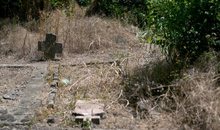

Accident on the Vlora-Qeparo axis, one injured
2025-07-08 15:11:52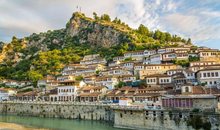
Berat, 17 years part of UNESCO's world heritage
2025-07-08 15:03:30
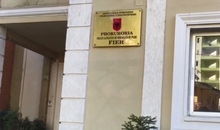

Cost of living increases, inflation rises to 2.4% in June, driven by food
2025-07-08 14:29:54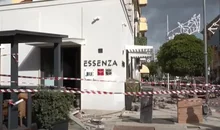
VIDEO/ Restaurant roof collapses in Italy, one victim and ten injured
2025-07-08 14:18:44
Requested release from cell, Supreme Court leaves Veliaj in prison
2025-07-08 14:07:41
TikTok shutdown/ Austrian media: Rama benefited politically from the app ban
2025-07-08 13:48:25
Acropolis temporarily closed due to heat
2025-07-08 13:31:09



Salianj's release/Berisha: He was politically condemned by Rama and Xhafa!
2025-07-08 13:00:13

Knife attack on Peshkopia Boulevard
2025-07-08 12:44:10


Fier Court decides on the conditional release of Ervin Salianj
2025-07-08 12:15:23
Cost of living increases, inflation rises to 2.4% in June due to food
2025-07-08 12:00:16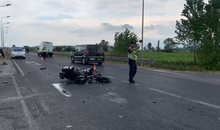

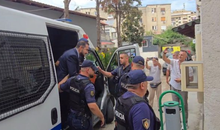
Requesting conditional release, Ervin Salianji arrives at the Fier Court
2025-07-08 11:16:36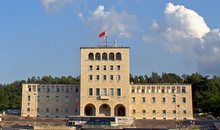
The first phase of university applications begins today
2025-07-08 11:10:52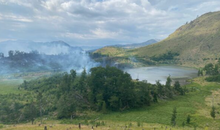
Fire in Lura, flames endanger the National Park
2025-07-08 10:53:43
Trump warns of 35% tariffs on Serbia and 30% on Bosnia and Herzegovina
2025-07-08 10:37:32
Thethi rooster and the dung cock
2025-07-08 10:24:01
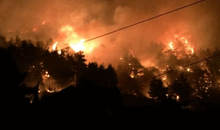
Fire in Dukat endangers Llogara National Park
2025-07-08 10:01:39
International drug search: 36-year-old arrested in Durrës (NAME)
2025-07-08 09:50:48
Thethi, tourists "criticize" modern trend
2025-07-08 09:39:54
Fire on Mount Dukat still active, Llogara National Park at risk
2025-07-08 09:28:12
Veliaj's appeal to be heard today in the High Court
2025-07-08 09:16:02
"Bad sign for democracy"/ Parliament neglects reporting by institutions
2025-07-08 09:04:56
Today's hearing at the Fier Court, Salianji requests conditional release
2025-07-08 08:56:39


